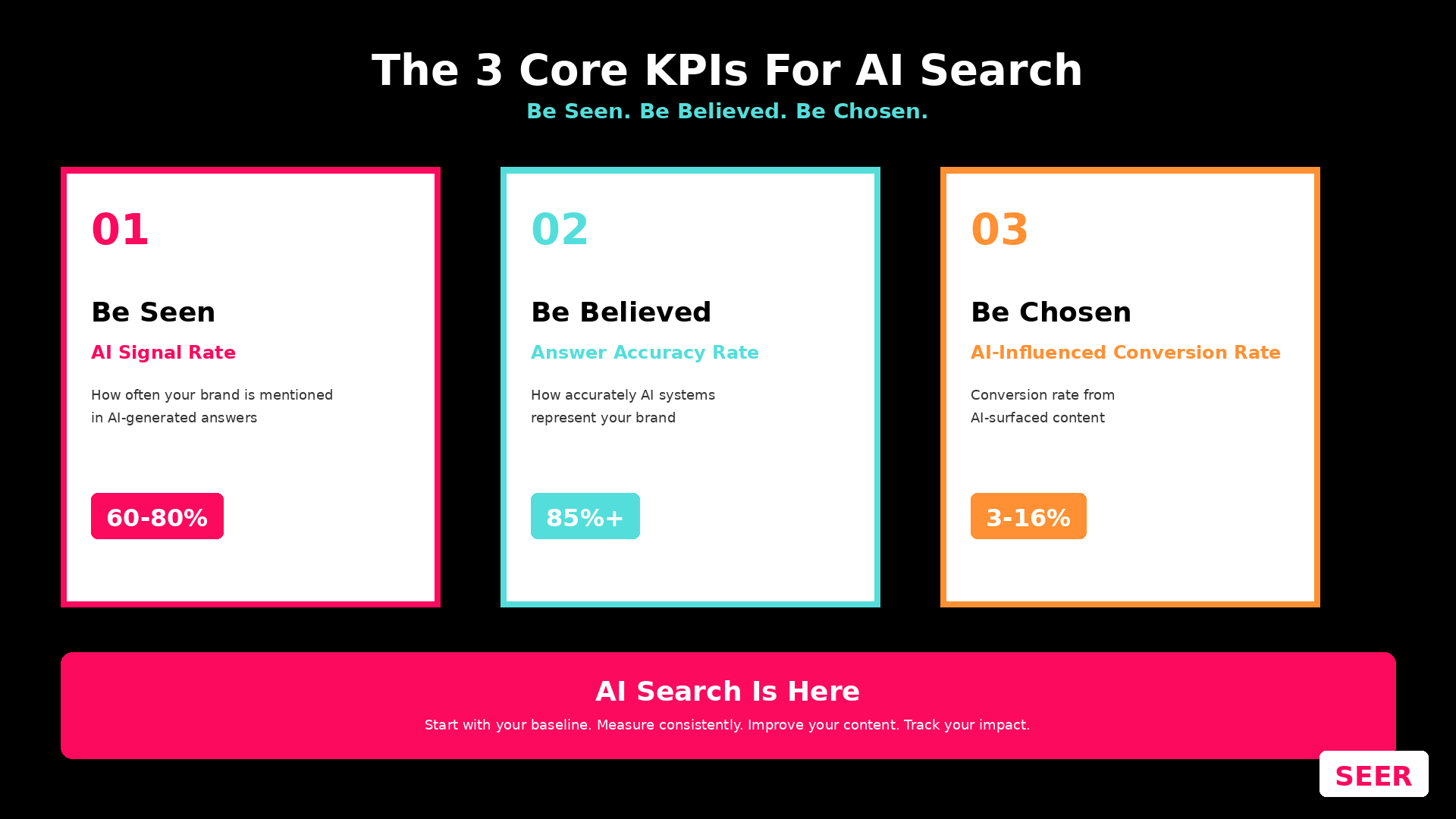Key Business Questions
Most businesses have a clear understanding of key performance indicators (KPIs) and use them to understand performance; however, since KPIs are based on historical data, they are hard to use as a tool to propel a company toward their goals. Instead, starting with key business questions sets off the analysis process and ensures outcomes are impactful to the business by tying questions to overarching goals.
By ensuring the questions point back to business goals and strategies, teams can avoid the trap of vanity metrics. Additionally, by getting to the root of what a company needs to know in order to achieve their objectives, analyst teams can ensure that they are collecting the right data along the way.
"If we knew... then we could..."
Identifying Key Business Questions
Start with Goals
We live in a world where we are swimming in data. With the amount of information collected on a daily basis we could answer any number of questions, but will those end up impacting your business goals? Probably not. Key business questions should be focused on the “business” goals or strategies, so in order to develop good key business questions, you need a firm understanding of organizational goals.
The goals for which you want to define your questions can vary in granularity. They could be specific to a particular channel (e.g. Email) or type of marketing effort (e.g. Digital). The questions can also level up to the highest strategic priorities in the organization or even to specific branding efforts. The important part is having a clearly defined organizational goal to focus on in order to generate your questions.
A Framework for Question Development
Once you know what goals you want to focus on, a helpful framework to develop your question set is to think “If we knew _____ then we could ____.” Re-phrasing your question this way helps to relate it back to the ultimate goal to ensure that you’re driving toward an actionable answer. Without the “we could” you may get some interesting answers but end up struggling with how to apply them to impact your business. By having the right question defined you’ll be able to reduce the time to value since you’ll have a focused list of data needed to complete your analysis.
Key Business Question Workshops
In order to arrive at the key business questions the best route is through a collaborative process. You should try to gather input from a diverse set of people within your organization from varying levels and functional areas. Bringing those folks together in a workshop setting allows them to generate their own questions based on goals, but also hear and get input from others. The collaboration can build stronger teams by having them understand the crossover between departments and how they can better support one another. At Seer we call these collaborative sessions Key Business Question (KBQ) Workshops.
The KBQ workshops can take place in as little as an hour and produce enough questions to keep you analysts busy for weeks. Workshops can be hosted in person or virtually so that all stakeholders, no matter their location, can participate. Each of your strategic goals have their own time-blocked section of the workshop. For each goal, participants add their questions to a shared canvas. Once everyone provides their answers common themes are uncovered to ensure that everyone is focused on the same key points.
Having a workshop shouldn’t be a one-off engagement. Goals and priorities shift often given the current market. Based on those changes additional workshops should be held in order to ensure that you’re continuing to answer the right questions for that moment and not rely on what you needed to know 6 months ago.
Workshops can be difficult to plan and run. If you'd like help, we can facilitate a key business question workshop with your team!
Prioritizing Key Business Questions to Answer
The final part of the key business questions process is the prioritization of the questions. Not all questions are created equal. The answer to some of these questions may only move your goals forward incrementally relative to the resources needed to do the analysis. Others may sound great but require data or resources that just aren’t available. In order to identify which questions should be answered first, we recommend using a prioritization matrix to group the output of the workshop.
Questions grouped on the left side of the matrix should be your lowest priority with the right-hand side being your most immediate focus
-
The questions grouped into the “Not Actionable” quadrant may sound great, but will lead to frustration from the team when they are unable to answer them due to technical difficulties or time constraints.
-
The “Low Impact” questions can be answered, but the results will most likely end up being “nice to know” information that will not impact your goals.
-
“Incremental” questions will help move your business forward; however, the impact will not be worth the resource investment.
-
Your focus should be on the “High Value” questions because getting answers to those will ensure that you have the insights you need to have an impact on the business.
Answering Key Business Questions
Data Collection
One of the benefits of proactively identifying the questions you want to answer is that you’re able to identify what data is needed prior to starting any analysis project. It’s always better to know what you need beforehand so that you don’t lose out on a great opportunity because you don’t have the data to answer the question. If you have gaps in your current data collection you can address them and start the project after the data has been collected.
Methodology
By defining exactly what you’re looking to answer you can also ensure that you have the right methodology available. The methodology needed can be something you and your team cover internally or you may need to identify other resources to help you complete the analysis. You can also determine if you can answer your question via data you’ve already collected or if you need to do some experimentation (Conversion Rate Optimization) or by talking to your customers (Audience).
If your question can be answered by analyzing the historical data you have, you can use the traditional analytics approach to get to those answers. The data that you collected from your web analytics tool, CRM system, or third party providers such as data warehouse can provide you with insights that drive competitive advantages.
If your questions are more hypothesis based, then you can apply techniques from testing or Conversion Rate Optimization (CRO) to get your answers. Take your questions and turn them into experiments that are run with real customers to see how your changes impact goals.
If you need to know more about your customers, we recommend conducting some in-depth customer research. These customer insights can be obtained through various methods including:
-
Direct conversations with your customers via interviews or surveys
-
Collecting data from social platforms to analyze customer conversations
-
Voice of customer surveys done in conjunction with your Customer Service department. They have a direct line to customers and know their complaints
This information can be helpful to better understand your customers, which will ultimately impact your organization’s goals.
Conclusion
Key business questions are essential for understanding and improving the performance of any business. Identifying and answering them requires a combination of understanding business objectives, resourcing and prioritization. By asking the right key questions, companies can make strategic decisions that drive growth and success.
Tired of uninspired analyses that do not drive any impact? Get in touch with us to help you define what key business questions you need to answer.


